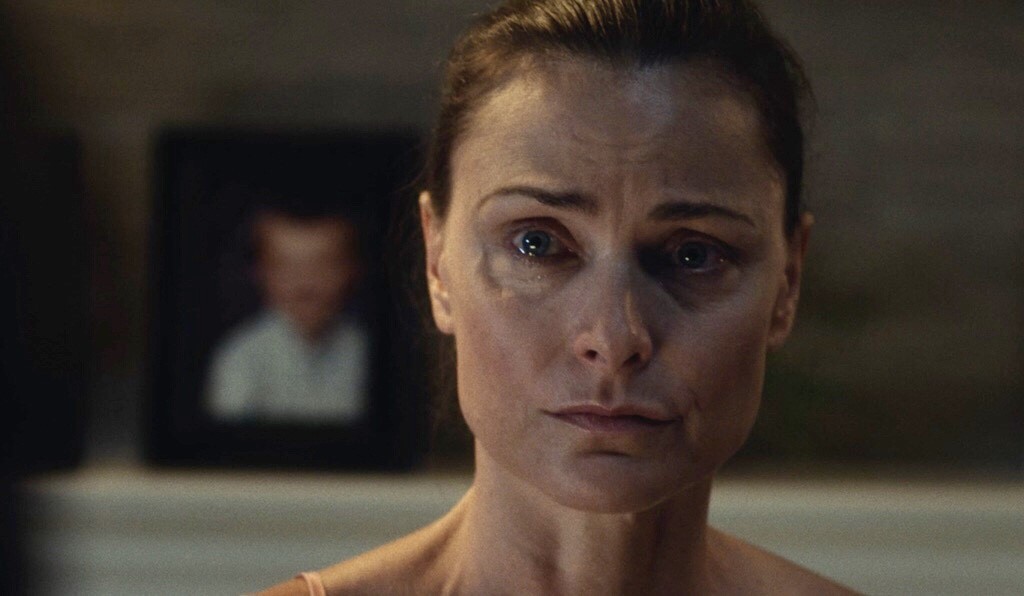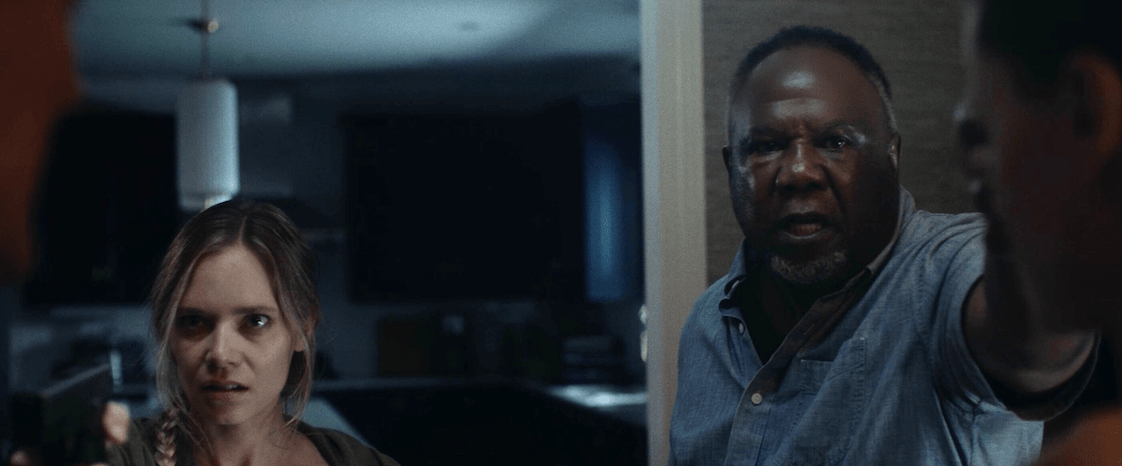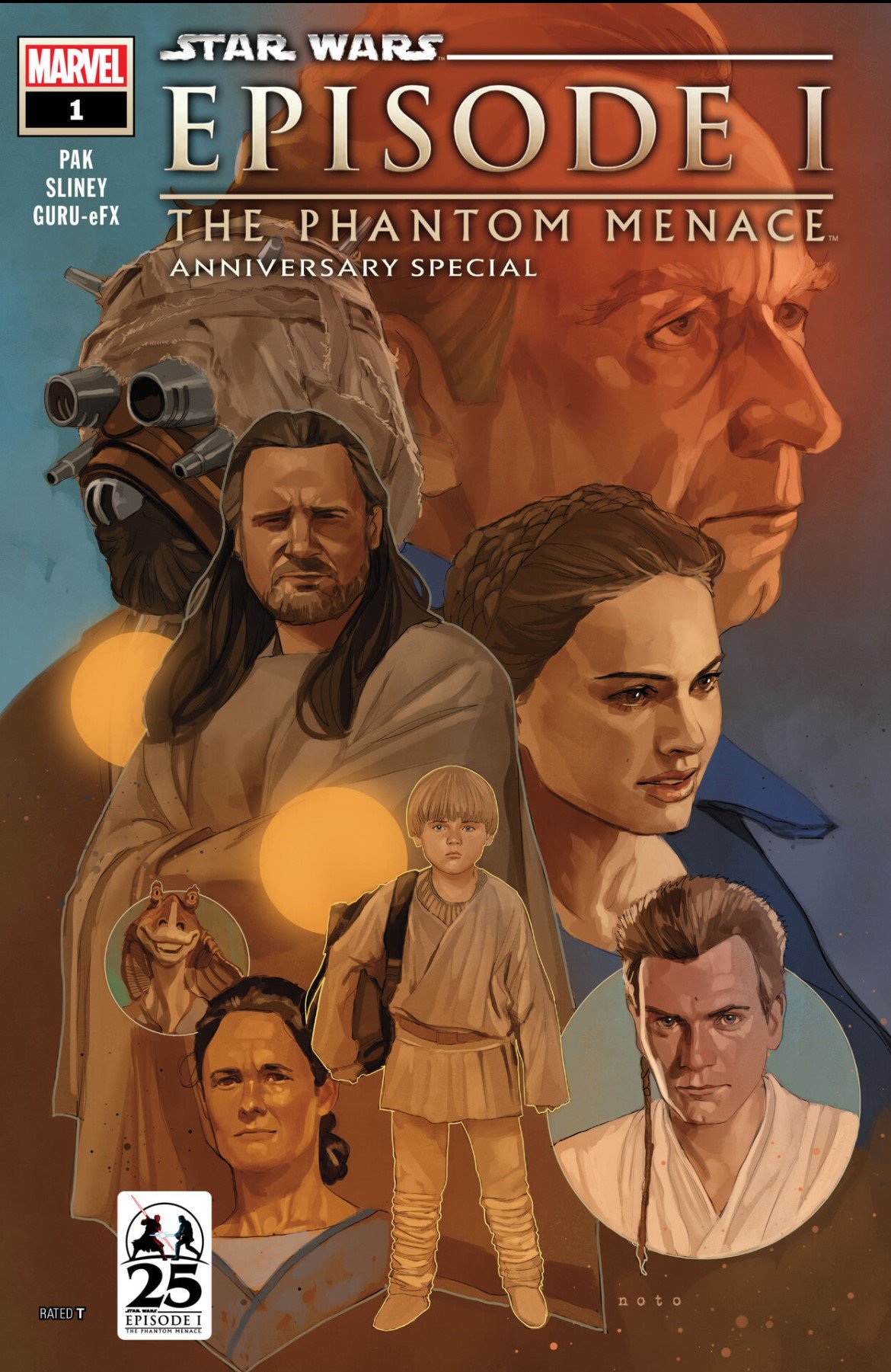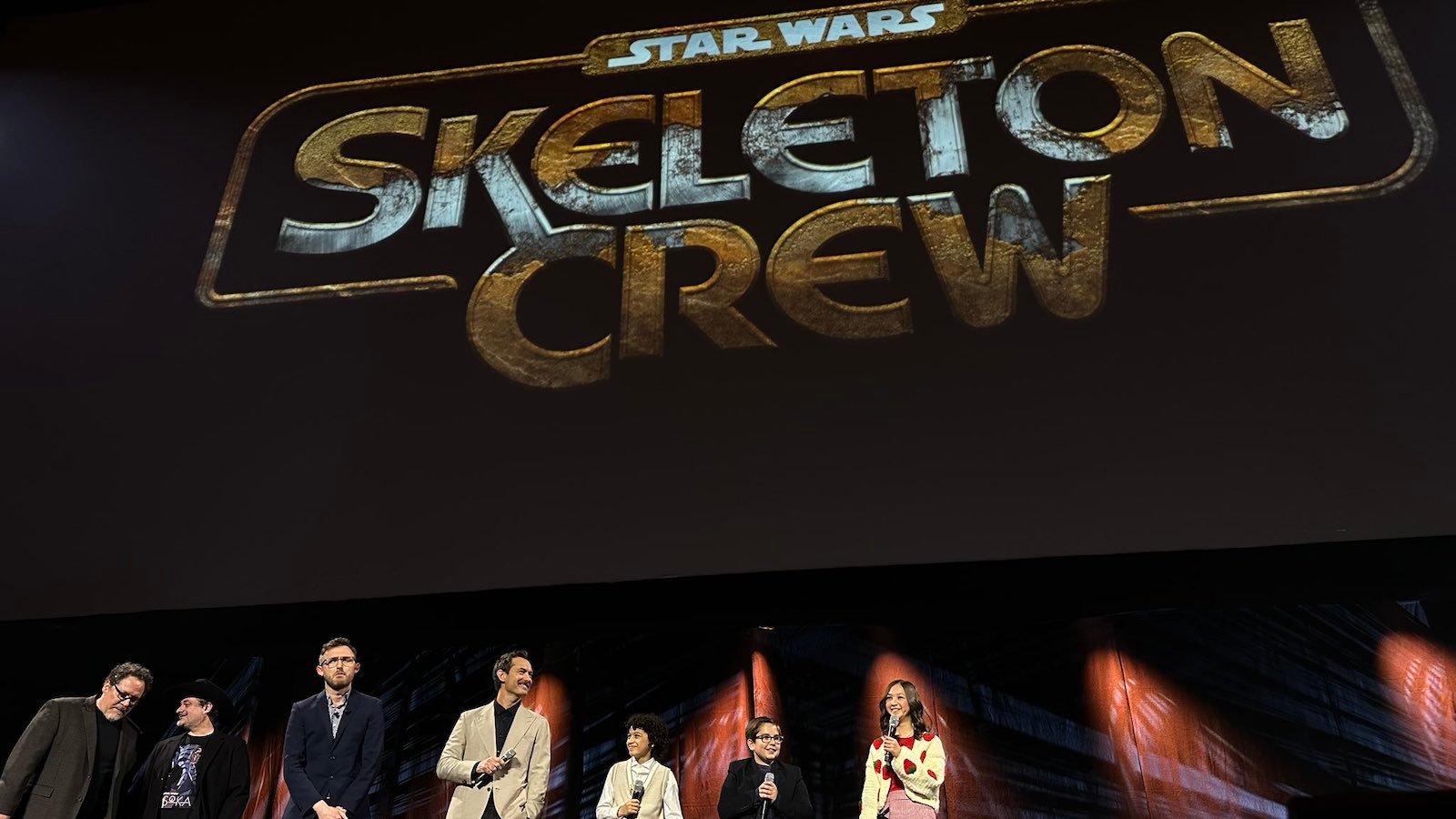‘Triggered’ Filmmaker Tara Westwood on Why It Was Such an Important Film for Her To Make (Full Interview)
The issue of gun violence prevention is, unfortunately, becoming more and more important. While filmmaking cannot provide a definitive answer, it can definitely act as a conversation starter. This is what the new, Oscar-qualifying short film Triggered intends to do.
This is the story of Ohio, played by Isiah Whitlock Jr., and Virginia (Caitlin Mehner), two people who have lost family members to tragic and senseless incidents of gun violence. After succumbing to their grief, they seek retribution against an influential senator (Tara Westwood) and her husband David (Robert John Burke), whom they hold responsible for their loss. I’ve already reviewed the film, which played in several film festivals over the past few months, but most recently, I personally had the privilege of speaking to Tara Westwood, who in addition to playing the role of the senator in the short film, she made her directorial debut with Triggered.
In our conversation, the filmmaker opened up about why it was so important to her to make Triggered, and how it is ultimately not a political film. It is more concerned about gun violence prevention rather than gun control. John Leguizamo, who is an executive producer on the film, was captivated by this particular part of her pitch, as she told me. Check out the interview below, and make sure to check out Triggered if you have the chance.
Q: So I’ll just start off by saying congratulations on the film, I thought it was really good. I also thought it was, unfortunately, very needed right now. It was a brand-new and nuanced perspective on the issue of gun violence, of course. I thought it was very layered for that. So just to warm up, how did this project come to you? Did the script come through your desk and you ‘Ok! I have to direct that’ or how was that?
A: Thank you for everything that you said. I wanted to film something about gun violence and I wanted it to be a different take on it, so I appreciate that. Triggered was a one-act play that I did where I played the senator, [the] same character [I played in the film], for Amy Schumer’s theater company “The Collective New York” in 2019, the night of one-acts. It was a little different than what we ended up shooting for the film, but I reached out to Thomas Dunn, the writer, afterward and asked if he had thought about writing a screenplay. And there was a bit of back and forth, and it turned out he had written one already. He had given the rights to someone who had seen our play and got them immediately from him. So I was so disappointed that I’d missed out on that, and then because of COVID they didn’t shoot it and they let the rights lapse, so then he let me take over and… It was the subject matter that I wanted to make my directorial debut about because it’s something I care so deeply about.
Q: What was different between the play and the actual script?
A: The outside scene didn’t exist. The second scene with the child’s room and the light, and Caitlin at the door didn’t exist. All the actors except for myself were different, so I recast it. There were a couple of things in the script that we changed, that I felt it was more important to make it a tight film and kind of keep the pacing up. So basically the story was the same, but there were a few things that we just changed.
Q: Ok, so you played the senator in the play already. Did you play that part in the film too because you inherited it, or… What was that called you to play that part?
A: Well, it’s such a layered, fun part to play as an actor. You can’t play that one note and play it right, so it’s challenging as an actor to play that part, I found, and I loved that. Yes, I’m being held at gunpoint and yes, my family is being threatened, but I still have to find ways to be the senator and figure out how to fix things. And I, Tara, am an extremely emotional person and would not handle that situation the way Heidi, the senator, did, so I wouldn’t have been nearly as strong and able to come up with the things the way she does, so it was challenging and fun to play in that way. But the fact that I played Heidi in the play allowed me to play her in the film as well because she was inside of me already, so I didn’t have to figure out how to play this character while I was trying to direct. I knew exactly who she was.
Q: Just going off of what you were saying, how do you think this scenario could have played any differently? The ending, in real life, how do you think that could have been resolved in any other way?
A: Well, the ending is interesting, and I won’t give too much away here, but I’m always curious [about] what people think happened. But I don’t want to discuss it because I don’t want to give anything away. But it’s very ambiguous, I think, the ending. And that’s what I wanted it to be. There are multiple things that could have happened… You know, we can say there’s a gunshot that happens at the end. And it’s a question up to the viewer and what they bring what they think happened. So that was really important for me to leave it ambiguous because I think the only way to do what I wanted to do, which is to have the audience have a conversation about the film and then maybe gun violence prevention, is to let people stay engaged. And if you give too many answers, they don’t have to think about it. We were just at [the] Woodstock [Film Festival], and I saw a lot of people the day after our screening that I’d never met before that came up to me and said ‘It’s all we talked about at the breakfast table’, or two days later I had people say ‘We just came from a dinner and everyone was talking about Triggered and what happened and…’ That’s all I wanted. And what was interesting is that there were some people there that owned guns that were talking about it. And I also want that. We have to all be included in the conversation and I didn’t want to make a film that was preachy, and I don’t think that it is. I think it is a film that makes people feel, and we are all capable of feeling, and we all have experienced loss in one capacity or another, and that’s why I think Triggered is important and can affect everyone watching it regardless of their stance on gun violence or guns in general.
Q: So do you think this same scenario could have ended with a gunshot? Let’s say that, was this scene doomed for a gunshot?
A: No, I don’t think so. I think that Caitlin’s character says that it’s happening in other parts of the country, and right now Thomas Dunn is writing the feature and maybe at those places something else happens. We will find out what else happens. I mean, I do think that those two characters came to our home to do something, you know? They’re there to do something. But I also think that they are not killers. These are parents that have lost their children to gun violence, and they are so riddled with grief that they don’t know what to do. And they want to be heard, and they want to make sure that no one else feels this (except for maybe me [Laughs]). So, you know, they just don’t know what to do, so I, as a person that lives in America, don’t know what to do anymore. How many petitions can I sign?
And I have family members that own guns, and again, I’m not saying… I don’t want to take away everyone’s guns, I grew up with guns. But 80% of NRA members believe there are small changes that could help, like better background checks, so we as a country have to have a better conversation to make a change. After [the] Sandy Hook [elementary school shooting] nothing changed, and after [the mass shooting in] Uvalde[, Texas, earlier this year], something changed, but not enough. So when you’re talking about that kind of tremendous tragedy, what will it take, you know? And in a way, that’s why I think Triggered is more important than ever, because these tragedies keep happening and it makes people numb, because they can’t think about it, they can’t talk about it. But if they can see Triggered and think ‘Oh it’s just a movie’ and then have the conversations that I think people are having, then that’s great.
Q: What is the one thing that you would like people to know about the making of the movie? The actual pre-, post-production, and filming?
A: I mean, as a first-time director I was just so grateful that everyone said yes. Literally everyone I asked said yes besides the fact that I knew them on some level. John Leguizamo, for example, when I first asked him, he was curious. His wife, Justine, had just seen the play. She had told him how powerful the play was. John is someone who is very socially active. He cares a lot about gun violence prevention. We had spoken on the phone, and he was like ‘Tell me what you wanna do… I care about gun control…’ And I said, actually that’s something I really don’t want to say, because I think if you say “gun control”, immediately someone feels like they are being controlled, and they are not going to have a conversation. But I prefer to say gun violence prevention… And he was like ‘Dude, dude! Wait, go back! What did you say? Gun violence prevention?’ And I said ‘Yeah, that’s so much better, because who wants to be the asshole that doesn’t want to prevent gun violence? Yeah! I like that, that’s great! Yeah, I’m in!’ Plus, he was so excited about Isiah Whitlock Jr., Bobby Burke, Caitlin Mehner, and everyone that’s involved. And he loved the project, and he came on board, which I was so grateful for.
And Isiah, for example, had seen the play. And in the play, Caitlin’s character was a Black actress and his character was a white man. And he said to me, ‘I don’t wanna be involved with a project that’s pushing the narrative of a Black man pushing a gun to a white woman’s head. I don’t know what movie you’re making, but that’s not something I want to be a part of.’ And I said, ‘Isiah, that’s not the movie I’m making. People at the end of Triggered will feel more empathy for your character than my character. You have to trust what I’m planning on doing with this. And it was also important for me to change, Caitlin’s character for me had to be white because she’s the one person in the film that does something horrific. And, obviously, gun violence, there’s no one race that does it, there’s no one sex that does it, there’s no one age that does it. But primarily, gun violence in this country, when we’re talking about mass shootings and things, and I’m just stating a fact here, primarily it’s a white male that does it. And I wanted to respect Isiah’s wishes and it was so important for me that they would understand that I’m not encouraging violence, all I’m wanting is to make people feel. And that’s what they did.
And the one thing that while they were filming, the one thing that’s unusual is that once we got into the living room, we filmed those takes 14 minutes at a time. We went [from] top to bottom, which is very unusual. I’d never experienced that as an actor, the crew was like ‘We’re doing what?’ [Laughs.] So that was challenging but it was also so important because it’s such an emotionally-driven piece that I didn’t want to break it up.
Q: So did you use one camera, or…?
Two cameras, thankfully. But in order to have to have the second camera, I did the production design. There were a lot of things I gave up to be able to have the second camera. I’m excited about the idea of doing a film where there’s department heads. We had Mariah Bergeron who came on as kind of wardrobe, and helped out with makeup, and she did everything as well with me, but we definitely gave up hiring people to help us in order to have that camera, but it was critical.
And now, it’s the only thing I’ve ever filmed, and having just been at Woodstock and listening to so many panels, I realized it’s never going to get better for me as a director than Triggered. I raised the funds myself, I was a producer as well, I was the director, so I had final cut, final edit, I didn’t have to answer to anyone. I certainly had people that I admire and respect sent it to, Marie Therese, our co-producer, was hugely important in the edit, so there were people I listened to. And our editor is fantastic. But as far as having control over everything [goes], from what I’ve now heard, I’m never having that as a director again. [Laughs.] I got very lucky, you know, that I could say, we don’t need a production designer, I’ll figure out how to decorate the home. I want the camera. If I had someone that was in charge of the money, they might have said ‘No, we’re not doing that’, and that would have really hurt the film.
Q: How do you think your experience as an actress helped everyone on set?
A: I think it definitely helps the actors, because I know what I need as an actor, I know how I like to work. I am very open to conversations as far as what an actor needs. I separately went to each of them (they don’t know this) and I said ‘Do you think to shoot out first? Do you want us to shoot you first so it doesn’t get lost?’ Because some people feel like their best two takes are the best, and some people think their last two takes are the best. And each actor didn’t have a lot of takes, because it’s a short film and we were shooting fast, but when the camera is on me, they were still giving me… Like, exactly what you see Isiah and Caitlin do on their takes, they were giving me that emotion on my take. So it’s really hard to maintain that, and we had those conversations along the way.
Q: What do you think you learned from Triggered, just as an actress?
A: I learned, without question, that actors… We take things way too personally. I could do a film and love one scene that for me as the actor is the most important scene in the film, and my best work that I can’t wait for people to see. And now I understand that… You know, we didn’t cut scenes from Triggered because there’s not a lot of scenes to cut. But there were moments that we had to cut, or maybe something was wrong and we had to focus on this. And I realize now that, as an actor, the edit, the majority of the time does not come down to your acting. It comes down to ‘Oh, there was a reflection on the window’, or ‘Oh, the other actor was doing this and that’s more important for the storyline’. Or whatever. It’s made me feel that I just have to assume that, if I’m on a set as an actor, I’ve gotten the job because I’m worthy to play that character. Just go and play it, don’t take everything so personally.
And I’m only saying this because I was speaking to someone recently, and half of their scenes got cut from a film. And they called me, and I said, ‘I can pretty much assure you, 100%, it had nothing to do with your acting. They had to cut 15 minutes from the film and your character is not the lead, so your storyline is the least important, and it had nothing to do with you.’ And I can say that so confidently having directed. So I think, in that way, I’ve learned a lot as an actor.
Q: I think that was it for me. Congratulations on the film again, and I really hope you have the best of luck rolling it out.
A: Thank you so much, I appreciate everything!
Triggered premiered at Cleveland International Film Festival, then played at Tribeca, and went on to win Best Drama Short and Best Performance in a Short for Isiah Whitlock Jr. at Cordillera International Film Festival. It was also screened at the CineLounge in Hollywood from the 9th to the 15th of September. The Oscar live-action shortlist will be announced on December 21st.
Miguel Fernández is a Spanish student that has movies as his second passion in life. His favorite movie of all time is The Lord of the Rings, but he is also a huge Star Wars fan. However, fantasy movies are not his only cup of tea, as authors like Scorsese, Fincher, Kubrick or Hitchcock have been an obsession for him since he started to understand the language of filmmaking. He is that guy who will watch a black and white movie, just because it is in black and white.









